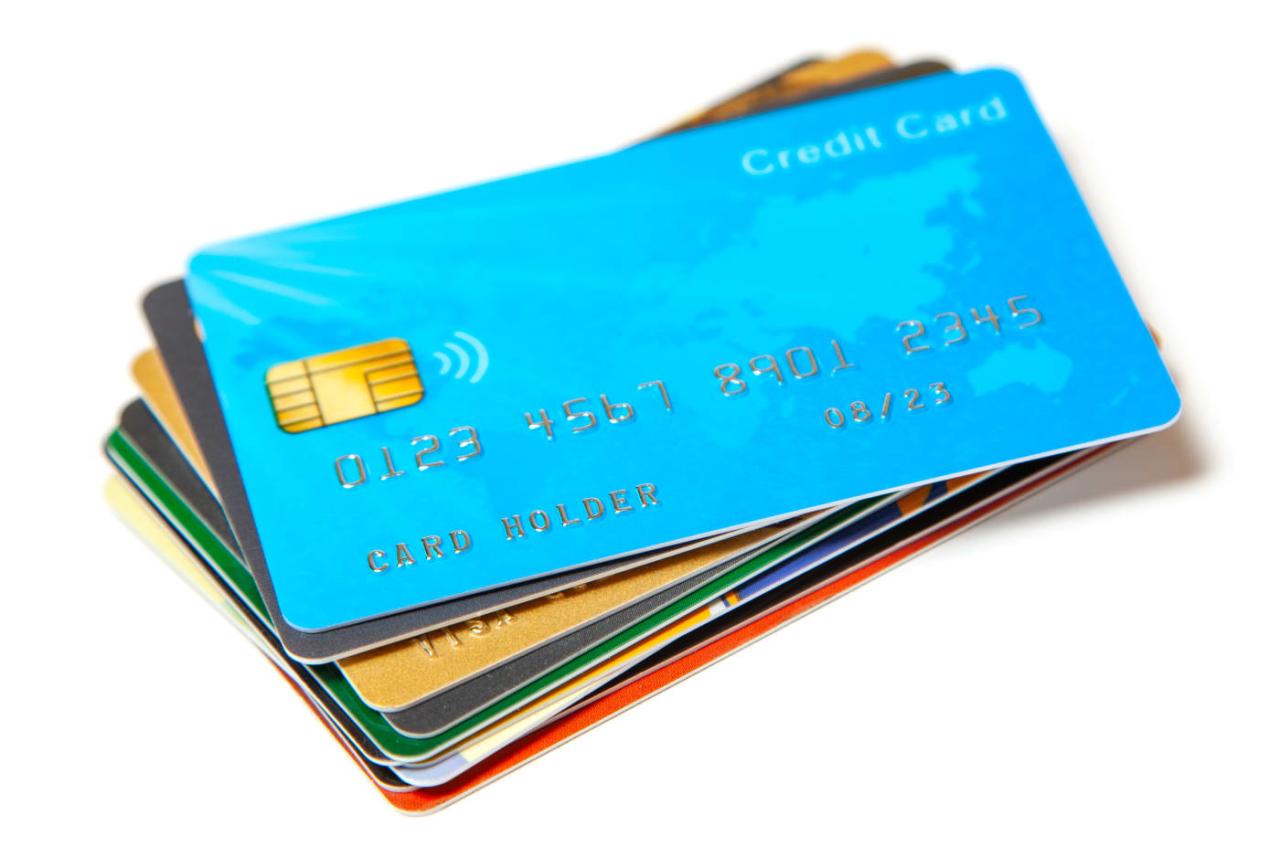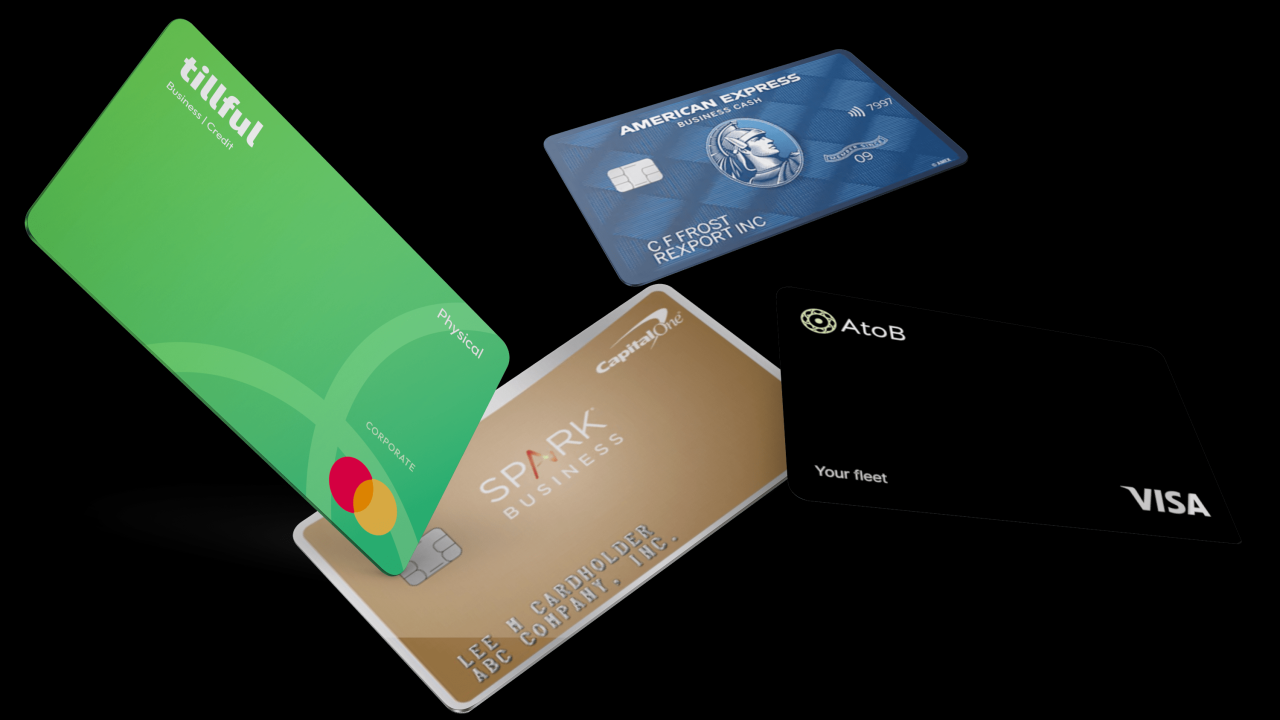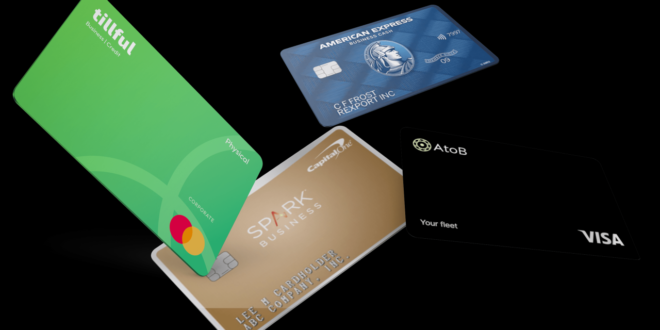When to open a business credit card is a question many entrepreneurs ponder. It’s a powerful tool that can help you build business credit, earn rewards, and access financing options, but it’s important to consider the potential drawbacks as well.
A business credit card can be a valuable asset for your company, allowing you to separate business expenses from personal ones and gain access to valuable perks and rewards. However, before applying for a business credit card, it’s crucial to understand the key factors that determine whether it’s the right financial decision for your specific needs.
Understanding Business Credit Cards
Business credit cards are a valuable tool for entrepreneurs and business owners. They offer a range of benefits that can help you manage your finances, build your business credit, and even earn rewards. But before you apply for a business credit card, it’s important to understand the key differences between personal and business credit cards.
Differences Between Personal and Business Credit Cards
Business credit cards are designed specifically for business use and are distinct from personal credit cards in several key ways:
- Eligibility Requirements: Business credit cards typically have stricter eligibility requirements than personal credit cards. Lenders may require a business credit history, a certain amount of revenue, and a good personal credit score.
- Reporting to Credit Bureaus: Transactions made on a business credit card are reported to business credit bureaus, such as Dun & Bradstreet and Experian Business. This information is used to build your business credit score, which can be crucial for obtaining loans, financing, and other business-related services.
- Rewards and Perks: Business credit cards often offer unique rewards programs that cater to the needs of businesses. For example, some cards offer bonus rewards on travel expenses, office supplies, or advertising spending.
- Spending Limits: Business credit cards typically have higher spending limits than personal credit cards, allowing businesses to make larger purchases.
- Accountability and Liability: Business credit cards usually require a business owner or authorized representative to be responsible for all charges made on the card. This means that personal liability for business expenses is typically higher with a business credit card.
Benefits of Business Credit Cards
Business credit cards offer a range of benefits that can help you grow your business:
- Building Business Credit: By using a business credit card and making payments on time, you can build a positive business credit history. A good business credit score can make it easier to secure loans, lines of credit, and other financing options in the future.
- Earning Rewards: Many business credit cards offer rewards programs that can help you earn points, miles, or cash back on your business expenses. These rewards can be redeemed for travel, merchandise, or other valuable perks.
- Accessing Financing Options: Business credit cards can provide short-term financing options. You can use your card to make purchases and pay them off over time, which can be helpful for managing cash flow.
- Purchase Protection: Some business credit cards offer purchase protection, which can help you recover the cost of stolen or damaged goods.
- Travel Benefits: Many business credit cards offer travel perks, such as airport lounge access, travel insurance, or bonus miles for flights.
Common Business Credit Card Features
Business credit cards often come with a variety of features that can benefit your business:
- Cash Back: Some cards offer cash back rewards on all purchases, or bonus cash back on specific categories, such as travel, dining, or office supplies.
- Travel Rewards: Many business credit cards offer travel rewards, such as airline miles, hotel points, or travel credits.
- Purchase Protection: This feature can help you recover the cost of stolen or damaged goods.
- Extended Warranty: Some business credit cards offer extended warranties on eligible purchases.
- Rental Car Insurance: This feature can provide insurance coverage for damage to a rental car.
- Employee Cards: Some business credit cards allow you to issue employee cards with spending limits and controls.
When to Consider a Business Credit Card: When To Open A Business Credit Card
A business credit card can be a valuable tool for business owners, providing a range of benefits that can help streamline operations and improve financial management. However, it’s important to understand the factors that make a business credit card a good fit for your specific needs.
Scenarios for Business Credit Card Consideration, When to open a business credit card
A business credit card can be particularly beneficial for business owners who:
- Need to make regular business purchases: If your business frequently makes purchases for supplies, equipment, travel, or other expenses, a business credit card can simplify the payment process and provide valuable rewards or cashback.
- Want to build business credit: Establishing business credit is crucial for securing loans, financing, and other financial products in the future. Using a business credit card responsibly can help you build a positive credit history for your business.
- Desire to separate business and personal expenses: Keeping business and personal finances separate is essential for accurate accounting and tax reporting. A business credit card can help you track business expenses effectively and avoid commingling funds.
Potential Drawbacks of Business Credit Cards
While business credit cards offer numerous advantages, it’s essential to consider the potential drawbacks:
- Interest charges: If you carry a balance on your business credit card, you’ll be subject to interest charges, which can significantly increase your overall expenses. It’s crucial to pay your balance in full each month to avoid accruing interest.
- Risk of debt: Overspending on a business credit card can lead to debt accumulation, which can strain your business finances and potentially damage your credit score. It’s important to use a business credit card responsibly and only spend within your budget.
- Annual fees: Many business credit cards come with annual fees, which can add to the overall cost of using the card. It’s essential to compare different cards and their associated fees before making a decision.
Separating Business and Personal Expenses
One of the primary advantages of a business credit card is its ability to help business owners separate business and personal expenses. This separation is essential for several reasons:
- Accurate accounting: By using a dedicated business credit card, you can easily track all your business expenses and generate accurate financial statements for tax purposes.
- Improved financial management: Separating business and personal expenses provides a clear picture of your business’s financial health, allowing you to make informed decisions about spending and budgeting.
- Simplified tax reporting: When you separate business and personal expenses, it becomes much easier to identify deductible business expenses during tax season, potentially reducing your tax liability.
Factors to Consider Before Applying

Before diving into the application process for a business credit card, it’s crucial to assess your business needs and carefully consider various factors. This will help you choose a card that best aligns with your business objectives and financial situation.
Credit Limit
The credit limit represents the maximum amount you can charge on your business credit card. A higher credit limit offers greater flexibility and purchasing power, but it’s essential to use it responsibly.
A higher credit limit can be beneficial for businesses with significant expenses, but it’s important to avoid overspending and managing your credit utilization responsibly.
Interest Rates
Interest rates determine the cost of borrowing money when you carry a balance on your business credit card. A lower interest rate translates into lower interest charges, saving you money in the long run.
It’s advisable to compare interest rates across different cards and opt for one with a competitive rate, especially if you anticipate carrying a balance.
Annual Fees
Many business credit cards charge an annual fee, which can vary depending on the card’s features and benefits. While some cards offer valuable perks, others might not justify the annual cost.
Before choosing a card, carefully evaluate the benefits and services offered against the annual fee. Consider whether the perks outweigh the cost, especially if you have a small business.
Documents Needed for Application
To apply for a business credit card, you’ll typically need to provide the following documents:
- Business Information: This includes your business name, address, phone number, and website. You may also need to provide your business structure (e.g., sole proprietorship, LLC, corporation) and your business tax ID number (EIN or ITIN).
- Personal Information: This includes your full name, address, phone number, and Social Security number.
- Financial Information: This may include your business bank statements, income statements, and tax returns. The specific documents required may vary depending on the credit card issuer and your business size.
Business Credit Score
Your business credit score is a numerical representation of your business’s creditworthiness. It’s calculated based on your business’s payment history, credit utilization, and other factors.
A good business credit score can improve your chances of approval for a business credit card and secure favorable terms, such as a higher credit limit and lower interest rates.
Responsible Use of Business Credit Cards

Using a business credit card responsibly is crucial for building a positive credit history and managing your business finances effectively. This involves setting spending limits, tracking expenses, and developing strategies to avoid accumulating excessive debt.
Setting Spending Limits and Tracking Expenses
Establishing spending limits and diligently tracking your expenses is fundamental to responsible business credit card use. This practice helps you avoid overspending and maintain control over your business finances.
- Set a budget: Before using your business credit card, determine a monthly spending limit based on your business’s cash flow and income. This helps you avoid exceeding your financial capacity and accruing excessive debt.
- Track your spending: Regularly review your credit card statements to monitor your spending patterns and identify areas for potential cost savings. This allows you to track your expenses and make informed decisions about your business’s financial health.
- Use budgeting tools: Utilize budgeting tools and apps to categorize your expenses and track your progress towards your spending goals. These tools can provide valuable insights into your spending habits and help you make informed financial decisions.
Managing Business Credit Card Debt
While business credit cards can be valuable financial tools, it’s essential to manage your debt responsibly. This involves paying your bills on time and avoiding the accumulation of high-interest charges.
- Pay your balance in full: Aim to pay your entire balance each month to avoid accruing interest charges. This is the most effective way to manage your business credit card debt and maintain a good credit score.
- Consider a balance transfer: If you find yourself carrying a balance, consider transferring it to a card with a lower interest rate. This can save you money on interest charges and help you pay off your debt faster.
- Develop a debt repayment plan: Create a plan for paying down your debt, prioritizing high-interest balances. This can involve setting a fixed monthly payment amount or making extra payments when possible.
Tips for Responsible Use of Business Credit Cards
The following table Artikels key tips for responsible use of business credit cards:
| Tip | Description |
|---|---|
| Set a budget and stick to it. | Determine a monthly spending limit based on your business’s cash flow and income. This helps you avoid overspending and accruing excessive debt. |
| Track your spending regularly. | Review your credit card statements to monitor your spending patterns and identify areas for potential cost savings. |
| Pay your balance in full each month. | Avoid accruing interest charges by paying your entire balance each month. |
| Use your card for business expenses only. | Avoid using your business credit card for personal expenses to maintain clear financial records and avoid potential tax implications. |
| Read the terms and conditions carefully. | Understand the interest rates, fees, and other terms associated with your card to make informed financial decisions. |
| Keep your credit card information secure. | Protect your card number, PIN, and other sensitive information to prevent fraud and unauthorized transactions. |
Wrap-Up

In conclusion, deciding when to open a business credit card is a strategic decision that requires careful consideration. By weighing the benefits against the potential drawbacks, understanding the factors involved in choosing the right card, and utilizing responsible spending habits, you can make an informed choice that empowers your business and helps you achieve your financial goals.
FAQ Overview
What is the minimum credit score needed to get a business credit card?
The minimum credit score required for a business credit card varies depending on the issuer and the specific card. However, a good credit score, generally above 670, will significantly increase your chances of approval and access to better terms.
How do I know if my business is eligible for a business credit card?
To determine if your business is eligible for a business credit card, you should check the issuer’s requirements, which typically include factors like business age, revenue, and credit history.
What are the best business credit cards for startups?
The best business credit cards for startups often offer perks like generous rewards programs, low annual fees, and flexible spending categories. It’s important to compare offers and choose a card that aligns with your startup’s specific needs.
 Norfolk Publications Publications ORG in Norfolk!
Norfolk Publications Publications ORG in Norfolk!

